AYIN BEIS | Existence Unplugged
Chapter 33 (part 2): Intellect and Emotions
Short Summary
The manifestation and internalization of the energies within the containers are also the cause of the parameters — higher and lower — which define the ten spheres.
Long Summary
In divine service, when one is contemplating G-dliness, his focus on the concept does not allow for the emergence of an emotional reaction. The attraction to G-dliness — the feeling that being close to G-d is good for the person — is a result of the contemplation on G-dliness. But it can only be aroused by concealing — moving away — from the intensity of the intellectual idea. Any emotional excitement and impact is outside of the essential experience, i.e. distant from the essence. While you are in the experience, you don’t feel the need to be drawn to it.
Within the cognitive this is similar to the distinction between chochma and binah; the spark of the idea is experienced in silence; the comprehension in details is experienced with excitement and passion (like the difference between the Kohanim and the Levites). But in general, intellect is bittul, suspension of self, in contrast to the emotions.
The emotions are necessary to implement the concept in active mitzvot and to refine the animal soul. But from the perspective of awareness and revelation, the mind is greater than the emotions, being that its bittul generates a higher energy than do the emotions which are self-oriented and connected more to existence.
Hebrew Text
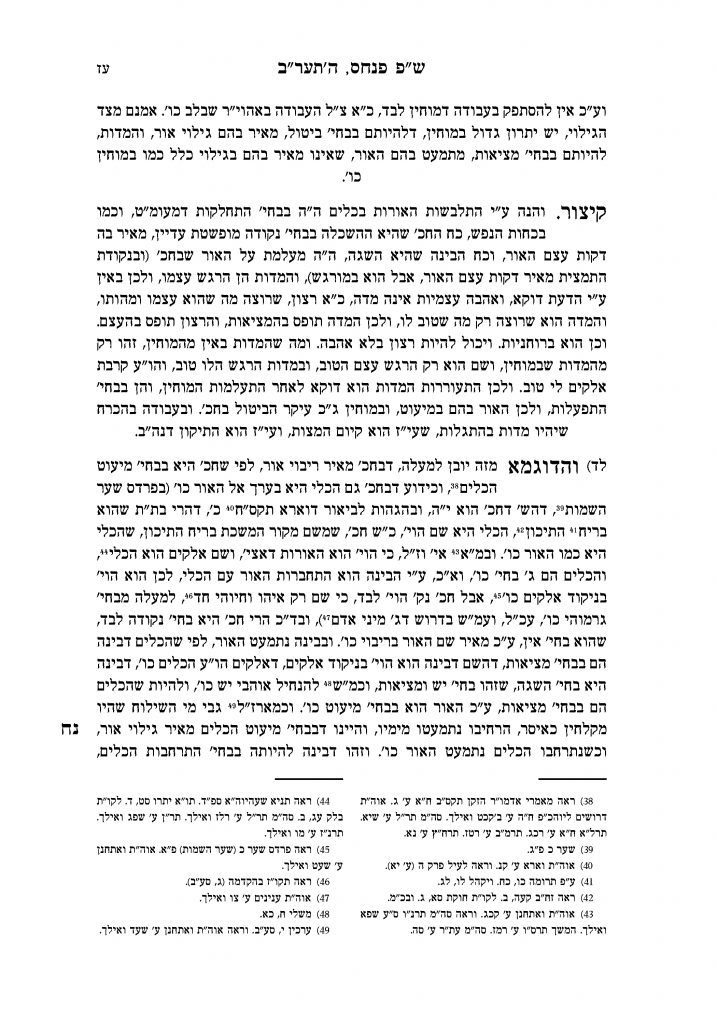
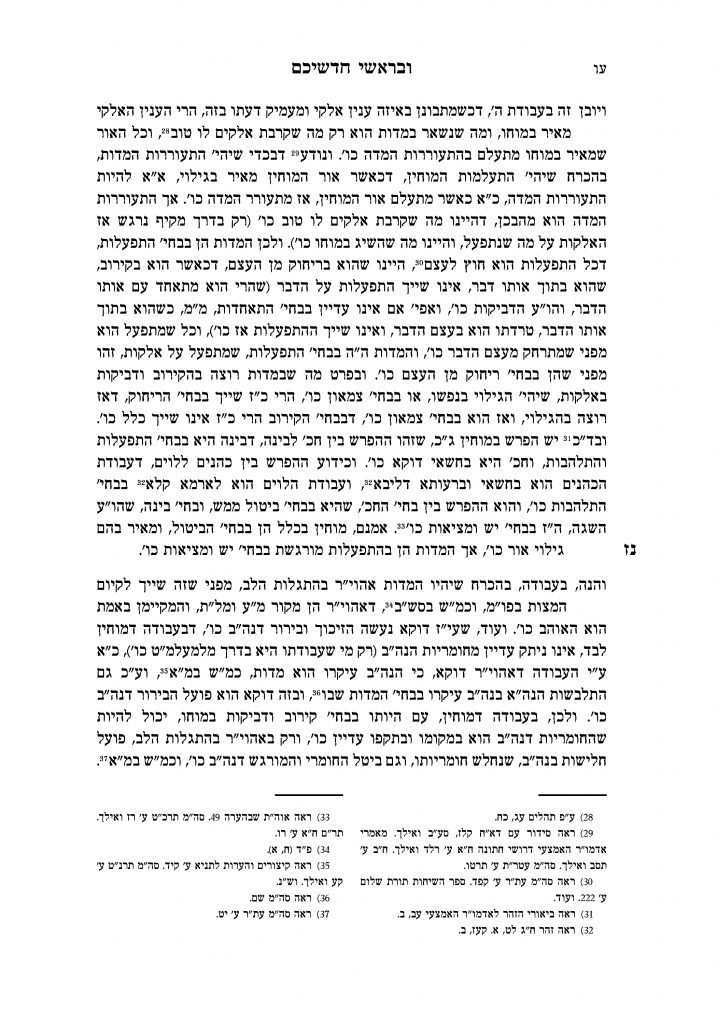
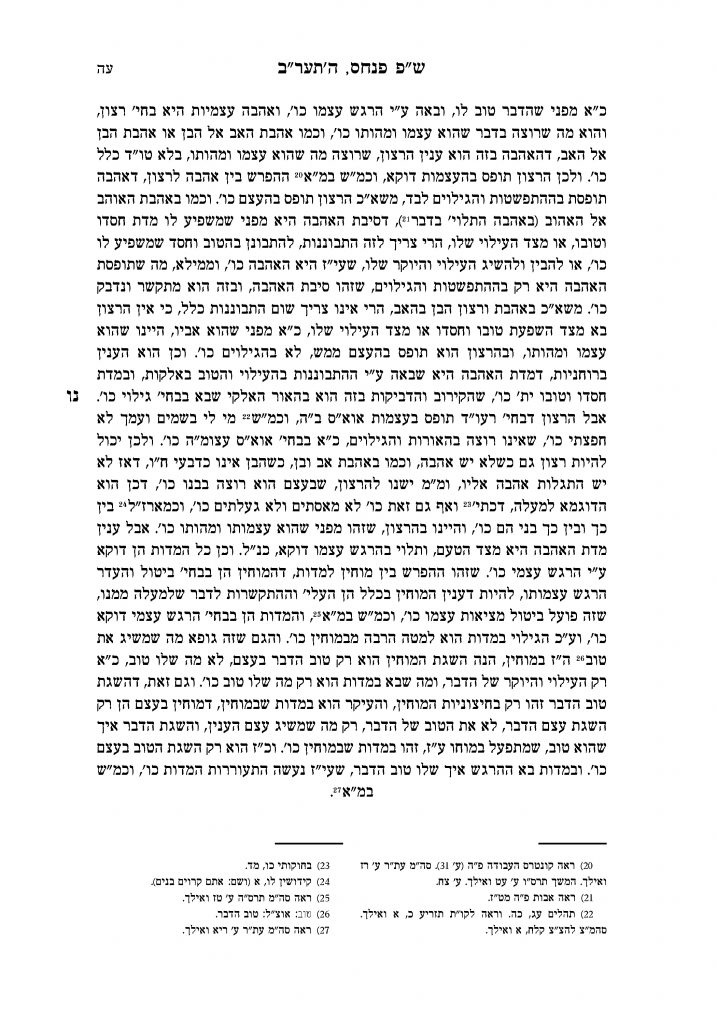
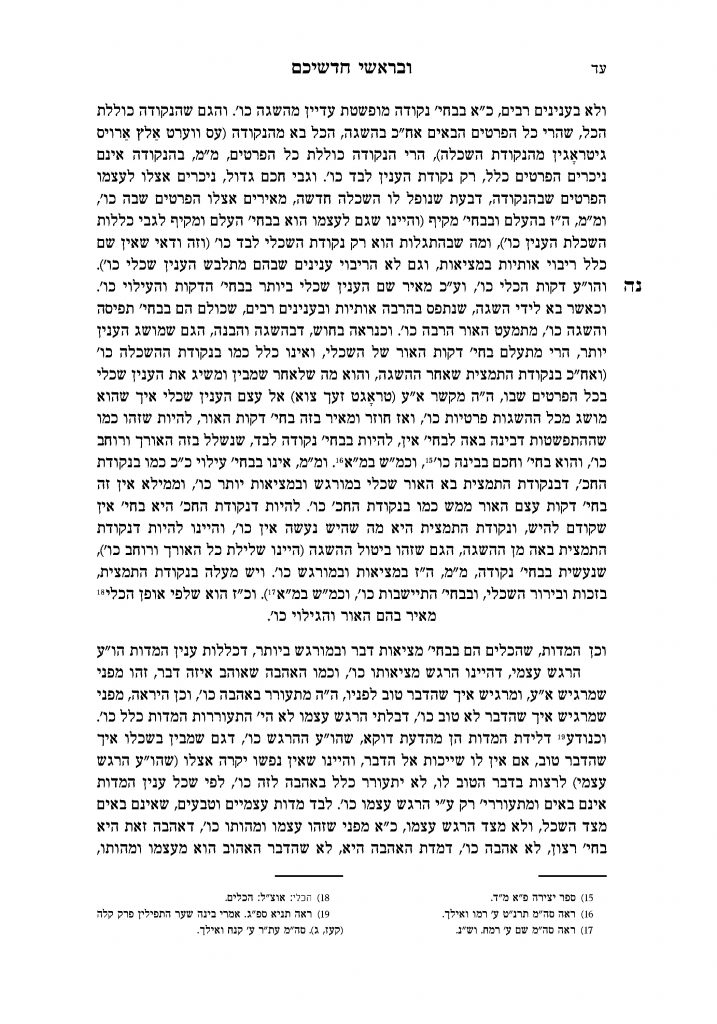
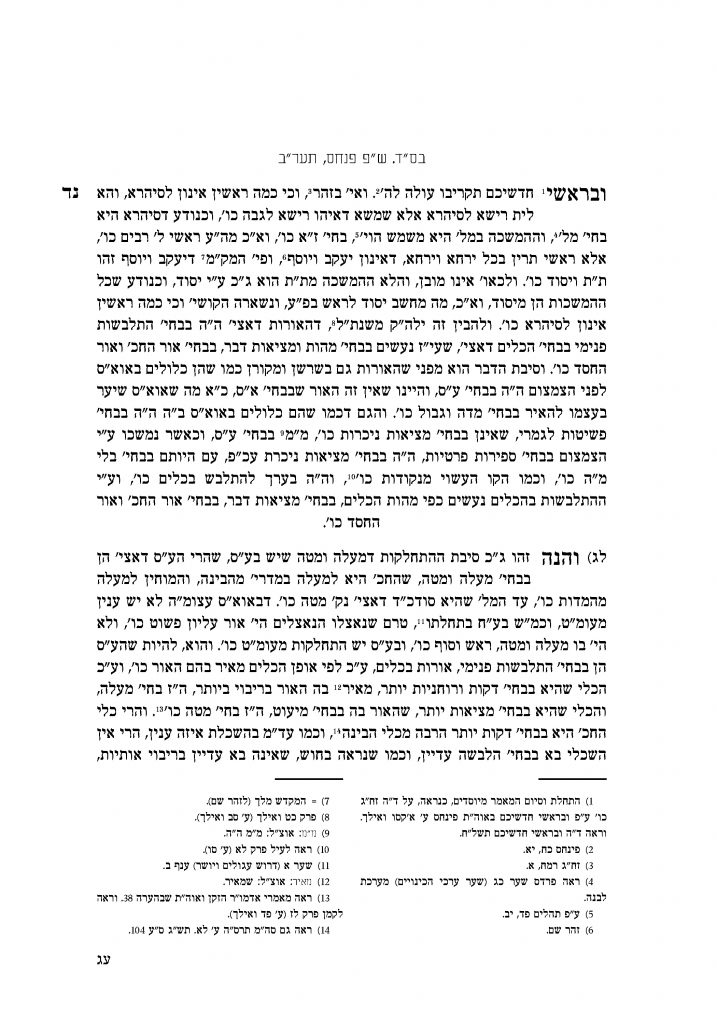
Concepts
Energies and Containers. Spatial Relations: Degrees of Energy

 Anchor
Anchor Breaker
Breaker Google Podcasts
Google Podcasts RadioPublic
RadioPublic Spotify
Spotify Pocket Casts
Pocket Casts